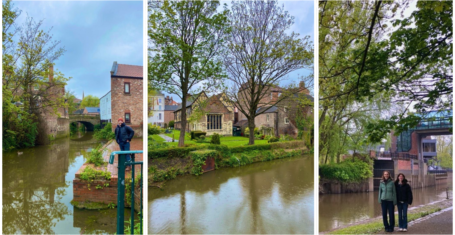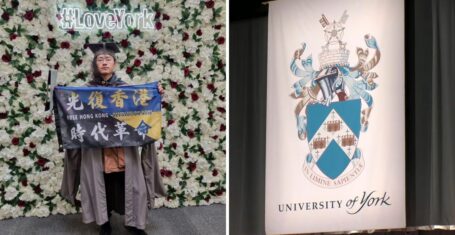
Ignore what you’ve heard, the York consent talks were a success
‘Consent talks are part of a much bigger aim to tackle this immensely tangled web.’
Across the country, universities are facing a virtually unprecedented mental health crisis as support services for students struggle increasingly to keep up with the huge demand for their services. To any liberation officer at any student union in the UK, this crisis is one that we see the effects of up close every day.
What many don’t realise however, is that this isn’t just about mental health. The problem is a huge tangled web of problems ranging from an increase in hate crimes, to cuts to disability services, to a lack of opportunities for liberation groups, to an epidemic of young male suicides, to a rise in student fees, to toxic masculinity, to a cut in staff pay, to a rise in sexual assault, harassment and rape on campus. Consent talks are part of a much bigger aim to tackle this immensely tangled web.
We are the Women’s Officers at the University of York Students’ Union – Mia Chaudhuri-Julyan and Lucy Robinson. Perhaps you’ve heard of us as a result of our gender-neutral consent talks being widely reported in the national media. We found ourselves under intense scrutiny this year after we announced that we would be launching York’s first ever consent talks which would be treated as a basic safety concern and thus be part of the fire and night out safety talks for freshers.
On Tuesday the project we’ve spent seven months working on finally came to life. We delivered four consent talks through the day, covering every fresher in every college. York’s local sexual assault and rape referral centre Survive helped us deliver part of the talks after having worked with us as our expert sounding board all year in the development stages of the talk. For the first time in the university’s history, Survive, the university management and YUSU collaborated on a project that will benefit every student.
You might ask why it took quite so long to bring our most challenging project to life? We spent a number of months researching consent theory; learning about the law surrounding consent; gathering reports and statistics; finding and meeting the writers of previous college-based consent talks at York, investigating what aspects of previous talks worked and what didn’t, consulting with all of the liberation networks, the YUSU team and the university staff, checking and formally rehearsing each and every word of our talk to make sure of it’s completely gender-neutral, non-patronising, positive, solution-based tone. This process took us seven months of work and was a huge learning curve for both of us. Consent might seem like something obvious and natural, but it’s so much more than just a simple yes or no, and that’s not something that universities and schools aren’t talking about enough.
Consent, the law surrounding it and the university support system have many complicated nuances that trip lots of people up. Admitting this isn’t meant to patronise, it’s meant to open up a dialogue so we can all learn to communicate in order to save lives. I would guess that you reading this know someone that has been sexually harassed either verbally or physically, assaulted or raped. The NUS recently found that one in three female students and one in eight male students in this country has been. A York-based Think Tank in 2013 also found that 52% of University of York students have also faced this horrible reality.
I hope this gives a sense of the momentous task YUSU took on with these consent talks and lots of the other accompanying projects that are currently in the pipeline. This is an issue that applies to all of us, and one that we all must tackle together. We are elected to represent students and to do right by them in doing so. We work hard to make sure that the policies we ran on in the election, actually come to life and benefit our community.
On the day, in the first of our four talks – we got off to a bumpy start as a powerpoint technical problem lead to a five minute delay. This meant that about a quarter of the room began to leave central hall. However, three quarters patiently waited for us to start and we had lots of intelligent questions at the end – and lots of people of every gender asking us why this part wasn’t compulsory. Leaving the first talk, we were met by one protestor who has campaigned all year against these talks, handing out leaflets with university branding – encouraging freshers not to go. After being asked to stop using university branding, he returned later in the day with his edited leaflets. Despite this, approximately five people in all of the three remaining talks left the room.
The consent talks were a huge success and we have received such heartfelt, positive feedback and comments from countless new freshers. We were delighted today to have literally hundreds of women and non-binary people sign up to join Women’s Network this year, and we cannot wait to get a new generation of York students involved in lots of exciting new projects that will make York a caring community of students who are united in our diversity.









































